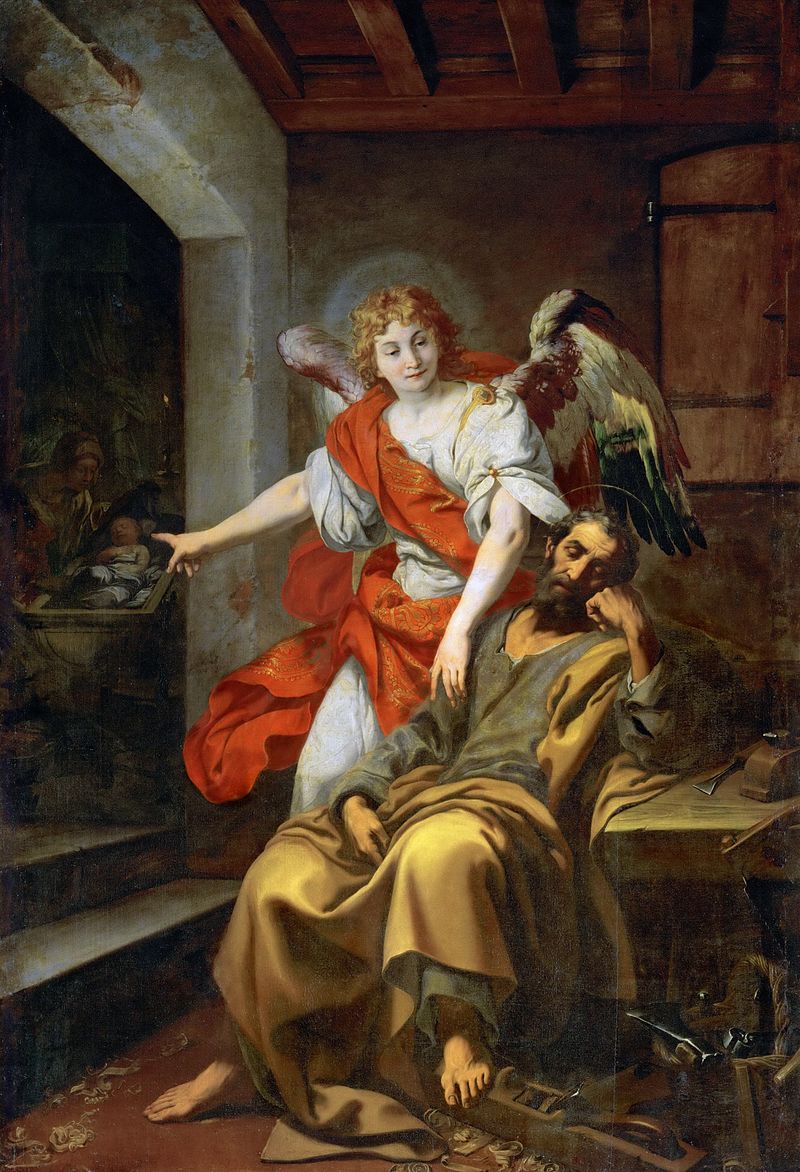Jijo Kandamkulathy, CMF
Claretian Publications, Macau
Mt 1:18-24
4TH WEEK OF ADVENT – YEAR A
“Here’s how the birth of Jesus happened,” thus today’s gospel’s passage begins. Matthew emphasizes the intervention of the Spirit from the beginning of his story to avoid a misunderstanding that Jesus may have been born through the intervention of a man.
The spirit, in this story, does not represent the male element. Ruah (spirit in Hebrew is female) indicates strength, a divine breath of the Creator. He is referring to the spirit of God that hovered over the waters at the beginning of the world (Gen 1:2).
The virginal conception that is even explicitly mentioned by Luke (Lk 1:26-39) is not intended to emphasize the moral superiority of Mary nor, still less, does it constitute a depreciation of sexuality. It is introduced to reveal a fundamental truth for the believer: Jesus is not only a man; he is from above and is the same Lord who has taken on human form.
There are many legitimate questions arising in us about this birth narrative. But Matthew is not interested in satisfying our curiosity. All he wants us to understand is this: the son of Mary is the promised heir to the throne of David announced by the prophets.
The conclusion of the story is solemn. The whole passage seems to have been written to prove the fulfilment of what was spoken by the Lord through the prophet: “Behold a virgin shall conceive and bear a son who will be called Emmanuel, which means God with us” (vv. 22-23).
The literal meaning of the original prophecy is the announcement of the birth of Ahaz’s son, Hezekiah. He was truly an Emmanuel, i.e., a sign that God protected his people and the dynasty of David, but did not answer all the expectations that had been placed in him. He did not even realize the promises of happiness, prosperity and peace described by Isaiah. He was not a wonderful counsellor, an invincible warrior, an everlasting father, a prince of peace… (Is 9:5-6).
Here is what Matthew means: Jesus is the one who has fulfilled these prophecies. He is the son of the virgin announced by the prophet. He is really the ‘Emmanuel’, ‘God with us’. He will be given an everlasting kingdom, and he will fulfill all the hopes of Israel.
Just as in the beginning of the Gospel of Matthew, the theme of Emmanuel also returns at the end of the book with the parting promise of the Lord, “Behold, I am with you (Here, I am the Emmanuel) always even to the end of this world” (Mt 28:20). The reference to “God with us” opens and closes all the work of Matthew because, the evangelist tells us, in Jesus, God has placed himself, and remains always at the side of humankind.
The story also highlights the virginity of Mary. The term “virgin” in the Bible also assumes a more metaphorical meaning: the person who loves with an undivided heart. Virginity is the symbol of total love for the Lord. It is in this sense that Paul uses the term when he writes to the Corinthians: “I share the jealousy of God for you, for I have promised you in marriage to Christ, as the only spouse, to present you to him as a pure virgin” (2 Cor 11:2).
Mary has certainly realized to perfection even this ideal of virginity. For every Christian, she is the supreme model of total and undivided love to God.
Today’s reflection will be complete only if we go through the mind of Joseph who is the protagonist in today’s reading. A man, a righteous man, betrothed to a woman (perhaps just a girl) is eagerly awaiting his wedding. Then he learns from the woman that she is pregnant. He is surely not the father. Her explanation that it is through the Holy Spirit – perhaps she did not even know how to explain that and might have narrated the angel’s story which Joseph might have found difficult to believe, like any man of our times. Joseph might have spent sleepless nights to get his dilemma solved – whether to marry this woman who carries another person’s child or not. He finally decides to divorce her privately to save from disgrace this woman he had begun to love passionately. It is after he decides to divorce that he gets the dream to accept Mary as his wife.
The dream is just a way of narrating how Joseph received advice from God without any mediation from priests or prophets. Here the dream is not a reference to an unconscious activity in the mind that takes place while a person is asleep, but rather an answer to a question that disturbed Joseph’s waking and sleeping hours. In the dream he recognizes that God’s will was to accept Mary and the child. When the will of God was against his decision, he still followed it.
The act of Joseph has a lot to teach us about our processes of discernment. Often, we would like to assume that our decisions are the will of God, or we find justifications to act against the will of God. What is my process of discerning God’s will in the things that I do?
Indebted to Fr. Fernando Armellini SCJ for the textual analysis
(Image: Saint Joseph’s dream by Daniele Crespi (1598 – 1630) at Kunsthstorisches Museum, Vienna, Austria. Source: Wikipedia, public domain)


 Follow
Follow


